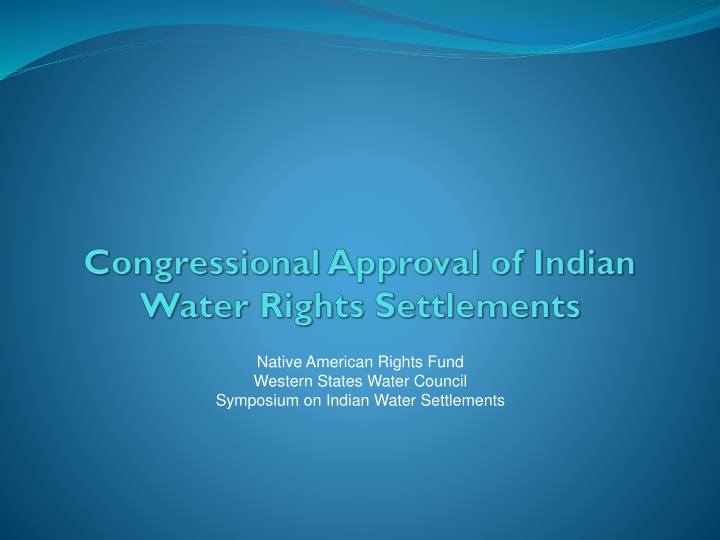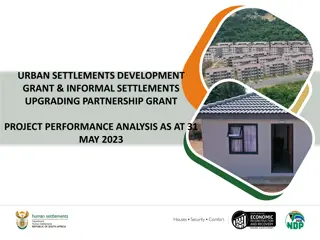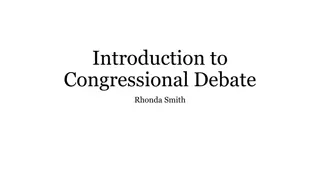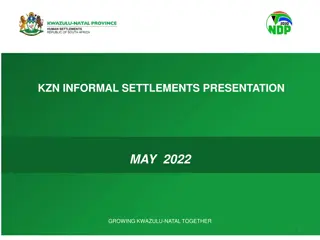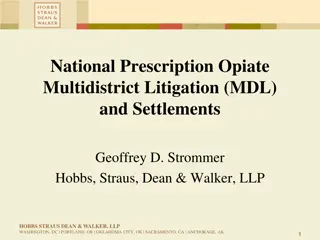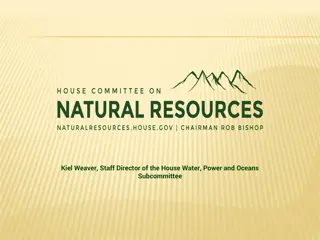Addressing Challenges in Indian Water Settlements: Funding and Congressional Engagement
The Native American Rights Fund and Western States Water Council Symposium highlights challenges in Indian water settlements, such as funding issues and Congressional engagement strategies. Addressing funding challenges includes extending the Reclamation Water Settlement Fund and ensuring reliable funding streams. Overcoming challenges in Congress involves engaging with Indian Country allies, cultivating new champions, and delivering a consistent message about the importance of settlements for tribal communities and taxpayers. Good messengers include tribes, governors' offices, and tribal organizations like NARF and NCAI.
Download Presentation

Please find below an Image/Link to download the presentation.
The content on the website is provided AS IS for your information and personal use only. It may not be sold, licensed, or shared on other websites without obtaining consent from the author.If you encounter any issues during the download, it is possible that the publisher has removed the file from their server.
You are allowed to download the files provided on this website for personal or commercial use, subject to the condition that they are used lawfully. All files are the property of their respective owners.
The content on the website is provided AS IS for your information and personal use only. It may not be sold, licensed, or shared on other websites without obtaining consent from the author.
E N D
Presentation Transcript
Native American Rights Fund Western States Water Council Symposium on Indian Water Settlements
Settlement Approval Challenges Bishop Process 1990 Criteria and Procedures Criterion 4, 5 Narrow legal focus on U.S. liability Often deployed as means of objecting to settlements or for political leverage Trust fund model? Unreliable future funding streams (discretionary funds will be inadequate) 2
Addressing Funding Challenges Chairman Grijalva s H.R. 1904/Sen. Udall s S. 3168 Extends the Reclamation Water Settlement Fund beyond the current expiration in 2029 provides $120 million per year in mandatory funding to implement settlements Ensures a predictable, reliable funding stream for current and future Indian water rights settlements (not subject to unpredictable annual appropriations) Alleviates the pressure on the Department of the Interior s discretionary appropriations to implement Indian water rights settlements Version passed through Senate Indian Affairs Committee under leadership of Chairman Hoeven and Vice-Chairman Udall Percent of Annual Reclamation Water and Related Resources Spending on Indian Water Rights Settlements FY2004 FY2005 FY2006 FY2007 FY2008 FY2009 FY2010 FY2011 FY2012 FY2013 FY2014 FY2015 FY2016 FY2017 FY2018 FY2019 7% 7% 8% 16% 9% 8% 9% 4% 9% 7% 10% 11% 12% 11% 13% 14% 3
Overcoming Challenges in Congress Engagement with Indian Country allies on Capitol Hill (Both Rep. and Dem.) Cultivating New Champions (50+ new House Members every Congress) Consistent Message Communication Settlements important for tribal economic development, public health, water supply certainty for Western communities Settlements support values of treaty rights, tribal sovereignty, and trust responsibility Historically Settlements = Net-Benefit for Taxpayers 4
Good Messengers Tribes ( Suit Up and Show Up ) Governors Offices Coalition of other supporters (e.g., water districts, NGOs, etc.) Tribal Organizations (e.g. NARF, NCAI) 5
Evaluating Settlements Long-term water supply reliability? Tribal support? State and local support? Administration support? NGOs? 6
Wrapping it All Up Despite Challenges, settlement approval is possible Will require persistence, patience, good communication, and engagement with allies in both parties In the medium and long-term, more reliable funding streams will be essential for future settlements 7
